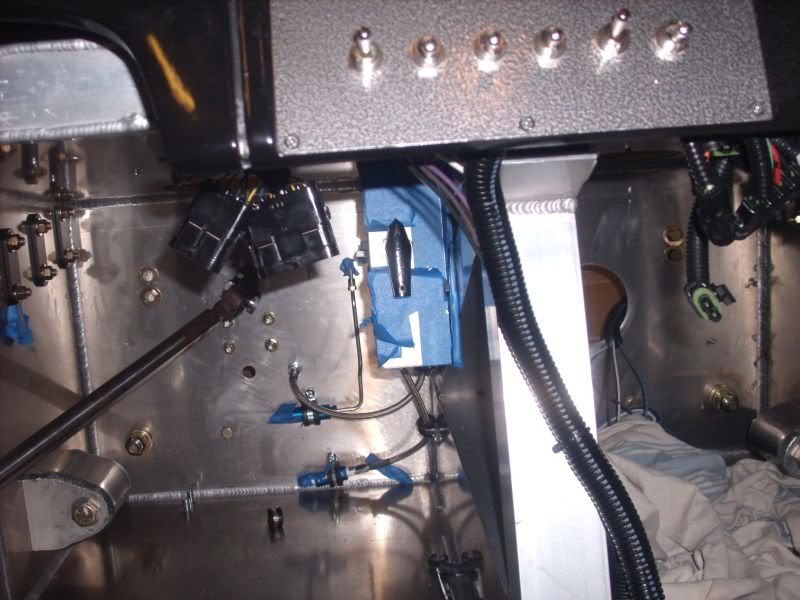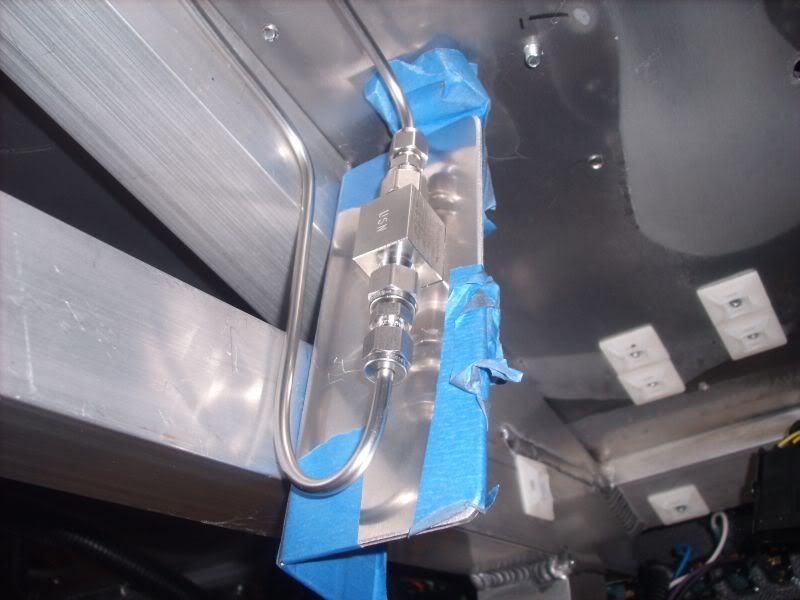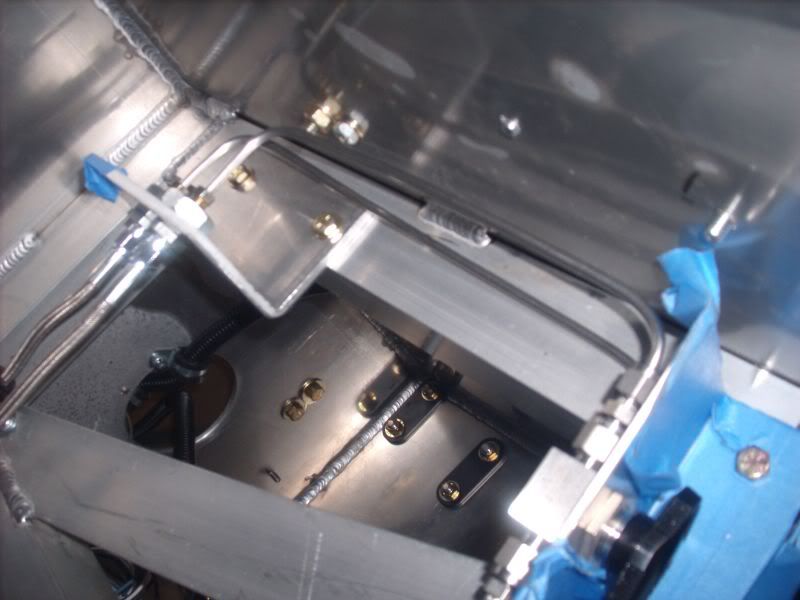Incase somebody needs an idea for a parking brake - I gave up on cables a long time ago. Too much effort to route and make functional (in any of my builds, heh) so I use a manual line lock - it's basically a ball valve plumbed into the rear brakes...manual so it doesn't rely upon any power.
Press the brakes, turn the handle, and it's basically like you're sitting there on the brake. Release handle, get brakes back.
It's 2 Swagelok compression fittings and one of their high pressure ball valves. That was the cheapest/easiest way I ever found to convert 3/16'' brake line to their fittings.



Press the brakes, turn the handle, and it's basically like you're sitting there on the brake. Release handle, get brakes back.
It's 2 Swagelok compression fittings and one of their high pressure ball valves. That was the cheapest/easiest way I ever found to convert 3/16'' brake line to their fittings.





